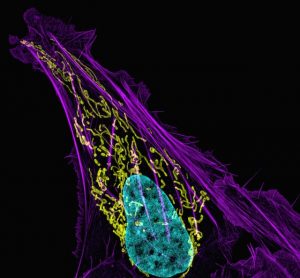Featured Products
Explore Products- In-Stock Tumor Cell Lines
- Human Orbital Fibroblasts
- Human Microglia
- Human Pulmonary Alveolar Epithelial Cells
- Human Colonic Fibroblasts
- Human Type II Alveolar Epithelial Cells
- Human Valvular Interstitial Cells
- Human Thyroid Epithelial Cells
- C57BL/6 Mouse Dermal Fibroblasts
- Human Alveolar Macrophages
- Human Dermal Fibroblasts, Adult
- Human Lung Fibroblasts, Adult
- Human Retinal Muller Cells
- Human Articular Chondrocytes
- Human Retinal Pigment Epithelial Cells
- Human Pancreatic Islets of Langerhans Cells
- Human Kidney Podocyte Cells
- Human Renal Proximal Tubule Cells



 The MG-63 cell line, originally isolated from the bone tissue of a 14-year-old White male osteosarcoma patient, displays a fibroblast-like morphology. MG-63 cells effectively adhere to various substrates, including Bioglass disks, titanium (Ti-6Al-4V) disks, and cobalt chrome (Co-Cr-Mo) alloys. Additionally, they demonstrate rapid proliferation and a significant increase in alkaline phosphatase activity in response to 1,25-dihydroxyvitamin D3 (1,25(OH)2D3) administration.
The MG-63 cell line, originally isolated from the bone tissue of a 14-year-old White male osteosarcoma patient, displays a fibroblast-like morphology. MG-63 cells effectively adhere to various substrates, including Bioglass disks, titanium (Ti-6Al-4V) disks, and cobalt chrome (Co-Cr-Mo) alloys. Additionally, they demonstrate rapid proliferation and a significant increase in alkaline phosphatase activity in response to 1,25-dihydroxyvitamin D3 (1,25(OH)2D3) administration.